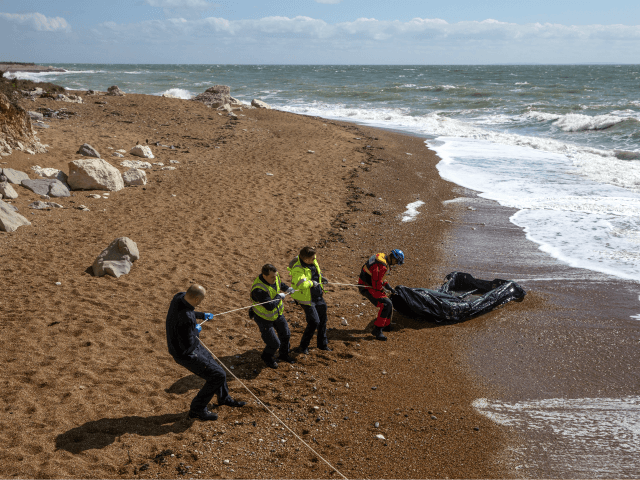Dozens of illegal migrants crossed the English Channel in boats over the weekend, the great majority landing undetected.
Twenty migrants were detected by Border Force officials only after they had landed in Dungeness, Kent, after crossing the narrow waterway in a dinghy on the 3rd of August, according to The Times.
Another eleven — all men, according to the newspaper — were intercepted while still at sea by a Border Force patrol cutter, but were picked up and brought the rest of the way to Britain rather than taken back to France, despite clearly being in no danger of state persecution in the G7 nation.
Six more were discovered in Sussex by police.
All 37 were ultimately transferred to immigration officials to be processed, except for a small number from the Sussex party described as minors, who were transferred to social service, and all claimed to be from Iran or Iraq.
All told, some 1,150 migrants were known to have attempted to cross the Channel by boat in 2019 as of last month, according to then-Home Secretary Sajid Javid — now Chancellor of the Exchequer, and succeeded by Priti Patel.
750 reached the English coast successfully — that the authorities know of, at any rate — despite the Home Office shelling out £780,000 for Royal Navy patrols at the start of the year which, in the end, achieved zero interceptions.
The figures are already more than double those for the whole of 2018, indicating that the problem is becoming out of control despite the Home Office declaring a “major incident” and promising effective crisis management at the end of last year.
The fact so many have been able to land without being intercepted also raises security concerns for some, given how frequently radical Islamic terrorists have managed to acquire fully automatic and other firearms for use in mass casualty atrocities in France.
Tens of thousands more illegal migrants are still attempting to force the British border by stowing away in road vehicles and ships or by breaking into the Channel Tunnel, of course, but the boat crossings have garnered more attention due to their being a relatively new phenomenon, reminiscent of the often deadly sea crossings which have seen hundreds of thousands of African and Asian migrants cross the Mediterranean and Aegean seas to Greece, Italy, and Spain.
“Anyone crossing the Channel in a small boat is taking a huge risk with their life and the lives of their children. Since December, two cutters have returned to UK waters from overseas operations, we have agreed a joint action plan with France and increased activity in Calais,” said a Home Office spokesman following the latest sea crossings.
“It is an established principle that those in need of protection should claim asylum in the first safe country they reach and since January more than 50 people who arrived illegally in the UK on small boats have been returned to Europe,” the spokesman boasted — although this figure does of course fall well short of the more than 750 who are known to have landed.
This is due in large part to European Union regulations, which mandate that illegal migrants entering a member-state should not merely –be returned to the last safe member-state — usually Emmanuel Macron’s France, in Britain’s case — but should instead be returned to the very first EU member-state they entered.
If this cannot be determined due to lack of a paper trail and the illegal arrival’s refusal to be forthcoming, which is not unusual, the authorities find themselves with few opportunites to deport — at least within the current legal framework.

COMMENTS
Please let us know if you're having issues with commenting.